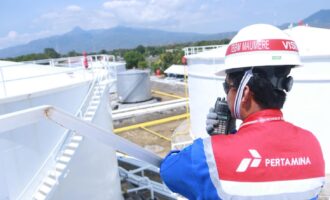Falck Renewables, Eni US sign agreement for wind, solar projects
Falck Renewables S.p.A. and Eni New Energy US Inc, through Novis Renewables Holdings, LLC (Novis), a partnership with 51% and 49% shares respectively, announce the signing of an agreement with Building Energy S.p.A. to acquire Building Energy Holdings US, LLC (BEHUS). BEHUS business consists of 62 MW of operating wind and solar projects in the U.S., a development and asset management team and a pipeline of wind projects up to 160 MW. A wholly owned subsidiary of Novis will acquire the equity of all the projects, the development assets, and the other activities of BEHUS upon the satisfaction of conditions precedent to the transaction for a total purchase price of $32.5 million that will be adjusted in line with market practice. The closing is foreseen by year end.
BEHUS was founded by Building Energy S.p.A. to develop wind and solar projects in the US in 2013. Novis will acquire five operating solar projects totaling 31.59 MW and a 30 MW wind project in Iowa all of which sell power under Power Purchase Agreements. Falck Renewables North America, Inc. will provide technical and administrative asset management on behalf of Novis to manage the newly acquired projects post-Closing of the transaction.
Novis will also acquire the development and operations team and a wind and solar development pipeline of BEHUS. Specifically, two late stage up to 80 MW each wind development projects in the western United States.
The generation for the assets in operations will contribute to offsetting over 93,000 tons of C02 per year.
“BEHUS is the inaugural transaction of the strategic partnership with Eni that closed in March 2020 and fits squarely into our joint business plan contributing to the sustainable growth targets of both partners”, commented Toni Volpe, CEO of Falck Renewables S.p.A, “we are also adding onshore wind both in operations and development to our portfolio in the USA strengthening our development and operations team.”
”For Eni, the acquisition of BEHUS is another step forward in our decarbonisation strategy, that is increasingly driving our company towards the development and production of energy from renewable sources – stated Massimo Mondazzi, General Manager of Eni’s business group Energy Evolution. In Eni, we have set very clear targets for our activities, as we intend to reach 3 GW by 2023 and over 15 GW of installed capacity by 2030. Our emission targets are equally well defined, with an 80% cut in all our direct and indirect emissions by 2050”.
Novis Renewables Holdings, LLC is a 51/49% subsidiary of Falck Renewables S.p.A. and ENI New Energy US, LLC. Novis operates 113 MW of solar assets and a 6.6 MWhr battery system in the US. Novis Renewables Holdings is consolidated line by line by Falck Renewables S.p.A.
Falck Renewables S.p.A., listed on the Italian stock exchange in the STAR segment (“FKR.MI”) and included in the FTSE Italia Mid Cap Index, develops, designs, builds and manages power production plants from renewable sources, with an installed capacity of 1,133 MW (1,096.3 MW according to the IFRS 11 reclassification) in the United Kingdom, Italy, United States, Spain, France, Norway and Sweden, using wind power, solar power, WtE and biomass technologies. The Group is a global player in the renewable energy technical advisory and asset management services business, through its wholly owned subsidiary Vector Cuatro, providing asset management services to clients accounting for approximately 2,900 MW of installed capacity and with experience in more than 40 countries. Moreover, Falck Renewables provides highly specialized energy management and downstream services to both energy producers and consumers. Visit www.falckrenewables.com.
Eni is an energy company with around 31,000 employees in 67 countries globally. It operates in the oil and natural gas exploration, development and extraction industries in 43 countries, trades in the oil, natural gas, LNG and electricity sectors in 28 countries and sells fuels and lubricants in 33 countries.
The company is contributing to the energy transition to a low-carbon future by promoting the development of energy produced from renewable sources. It is doing so by using new and increasingly efficient clean technologies and by applying the principles of the circular economy to all aspects of its activity. The decarbonisations targets for 2050, with intermediate steps in 2030 and 2040, aim at reducing by 80% net GHG emissions from the entire cycle of its energy products, that include conventional, blue, green and bio.









